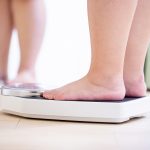
An inexpensive medication long used for depression and migraines now has a clinical trial to back up its off-label use for another condition that lowers quality of life: irritable bowel syndrome (IBS). In the study, British researchers found that those taking amitriptyline were almost twice as likely as those taking a placebo to see an improvement in IBS symptoms. “We were delighted that the drug was both effective and safe for IBS when used at a low dose and titrated [slowly increased],” said Dr. Alexander Ford, a professor of gastroenterology at Leeds Institute of Medical Research at St. James’s at the University of Leeds. About 1 in 20 people worldwide live with the abdominal pain and bowel issues that are hallmarks of IBS, a chronic condition with no known cure. “IBS has a substantial impact in terms of affecting social activity, ability to work, out-of-pocket expenses and quality of life for sufferers,” Ford said. Although there are other treatments, most have only a modest impact, according to the study, with people often still suffering symptoms. “First-line treatments do not work for many patients with IBS, so there is a real unmet need as there are few other available therapies in the U.K. and the impact of IBS on the individual, health care systems and society as a whole is substantial,” Ford said. Amitriptyline is part… read on > read on >
























-300x200.jpg)













